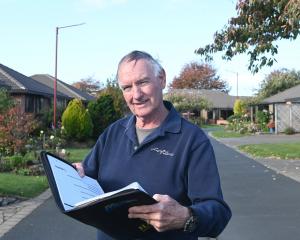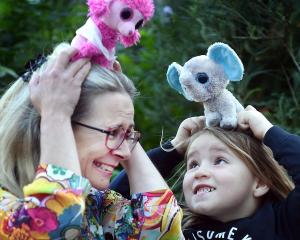That comment was made this week by Associate Prof Diana Sarfati, of University of Otago's Wellington campus, about the research, just published published in The Lancet Oncology.
This study, led by the International Agency for Research on Cancer, focuses on the scale and nature of cancer among indigenous peoples of the United States, Canada, Australia and New Zealand.
The study shows high rates of often preventable cancers, emphasising the need for targeted prevention strategies in these populations.
Indigenous people have ''disproportionately worse health and lower life expectancy'' than their non-indigenous counterparts in high-income countries, the researchers found.
The study investigated and compared, for the first time, the cancer burden among indigenous populations in the four nations.
It was led by Dr Suzanne Moore, of the Menzies School of Health Research, Charles Darwin University, Australia, and other authors included
Prof John Potter and Dr Lis Ellison-Loschmann, both of Massey University, New Zealand.
The research found high rates of lung cancer among indigenous men in all Australian regions, New Zealand, and US Alaska natives.
Observed rates ranged between 44% higher, in Western Australia, and 155% higher in New Zealand, than those observed in non-indigenous men.
Lung cancer rates were also particularly high in Maori women, four times that of the non-Maori rate, and the rate for Alaska native women was 60% higher than in white women.
Compared with their non-indigenous counterparts, the overall observed cancer burden was substantially lower in indigenous populations in the US, except for women in Alaska, where it was higher.
The relative levels were similar or slightly lower in Australia and Canada, and higher in New Zealand.
Prof Sarfati, who is director of the Cancer Control and Screening Research Group, at Wellington, reviewed the study, before publication.
She has also written a commentary, with Maori associate dean Bridget Robson, of the campus, and Prof Sarfati also commented further in an interview.
''Childhood poverty casts a long shadow, increasing the risk of cancer in adulthood,'' Prof Sarfati said.
Many people did not realise that childhood poverty, including poor and overcrowded housing conditions, greatly increased the risk of developing cancer as an adult.
Maori also had ''very high smoking rates'' and were ''more likely to live in poverty than non-Maori''.
Housing overcrowding during childhood was ''an established risk factor for chronic infections which are strongly related to cancers of the liver and stomach later in life'', she said.
These findings strengthened the argument for developing a ''strategic focus'' on the burden of cancer among Maori, the need for better monitoring and the development of interventions that address the ''underlying factors that drive cancer inequities'', she said.
Data in the report suggested that inequalities between indigenous and non-indigenous people could be ''worse in New Zealand'' than elsewhere.
Inequality issues were concerning, but she warned that data in other countries was substantially less accurate than the New Zealand figures.
This meant the incidence of cancer among indigenous people in the other countries was likely to be underestimated, possibly substantially.
New Zealand had ''some of the best data to monitor inequalities, resulting in accurate estimations of cancer incidence for Maori'', she said.












